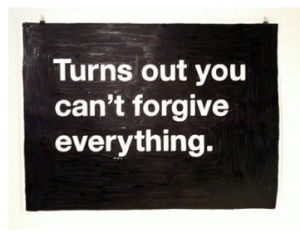by Charles Plant | Aug 21, 2012 | Emotional Intelligence, Leadership Development, Research
 Lest you think I’m making up some of this stuff on Intrapersonal Intelligence, I want to introduce you to Howard Earl Gardner, an American developmental psychologist who is a fancy professor at Harvard. The author of over 20 books he is best known for his theory of multiple intelligences.
Lest you think I’m making up some of this stuff on Intrapersonal Intelligence, I want to introduce you to Howard Earl Gardner, an American developmental psychologist who is a fancy professor at Harvard. The author of over 20 books he is best known for his theory of multiple intelligences.
Gardner’s theory is that intelligence is not generalized but that people have eight different types of intelligence, all independent of each other. These intelligences are different ways of learning and processing information, Gardner has identified eight intelligences:
- Linguistic
- Logic-mathematical
- Musical
- Spatial
- Bodily/kinesthetic
- Interpersonal
- Intrapersonal
- Naturalistic.
As a leader, you’ll need to use many of these types of intelligence but the foundation of your success is to be able to understand yourself, thus Intrapersonal Intelligence.
Intrapersonal Intelligence has to do with introspective and self-reflective capacities. Understanding what your strengths and weaknesses are, what makes you unique, being able to predict your own reactions or emotions are elements of Intrapersonal Intelligence. Philosophical and critical thinking is common with this intelligence.
If you want to read more on this subject I would recommend Gardner’s book “Intelligence Reframed” (1999).
by Charles Plant | Aug 20, 2012 | Leadership Development, Learning
 Every now and then you meet someone with extraordinary intrapersonal skills but chances are, you may not even know it. That’s because you usually notice it only when someone has poor skills in this area.
Every now and then you meet someone with extraordinary intrapersonal skills but chances are, you may not even know it. That’s because you usually notice it only when someone has poor skills in this area.
Someone without good intrapersonal skills might be timid, take stupid risks or start yelling and screaming at the drop of a hat. You tend to notice these extremes of behaviour but you don’t notice it when someone is balanced and even tempered.
Intrapersonal skills are the foundations of a successful career. This is emotional intelligence, the ability to know, understand and mange your own emotions.
Years ago, I used to look at senior people in companies and wonder how on earth they got to where they are. With time I came to recognize that a lot of their success was predicated on emotional intelligence and have come to recognize that this type of intelligence has two parts, interpersonal skills and interpersonal skills.
I started looking at this list of interpersonal skills and found a whole slew of them that warranted examination. This isn’t an exhaustive list as there are so many skills you could list in this area
The List
Some people are high in some skills and low in others and no two people have the same set of skills in the same degrees. And the mix probably doesn’t correlate with effectiveness.
You just need enough interpersonal skills in enough different areas to be effective in a work situation..
by Charles Plant | Aug 17, 2012 | Leadership Development
 Yeah, I know I’ve spent all week talking about forgiving but not forgetting. In spite of that there are a few people that I just can’t seem to forgive. These are my top 5.
Yeah, I know I’ve spent all week talking about forgiving but not forgetting. In spite of that there are a few people that I just can’t seem to forgive. These are my top 5.
- Ben and Jerry – In particular I can’t forgive them for making a certain flavour known as half baked. UmmUmm delicious. I also can’t forgive them for making those convenient 500 ml single serving containers. ( I know that Ben and Jerry are two people but just this once will you forgive me if I count them as one?)
- Meatloaf – No, not the food, the singer. For some reason, whenever I get into the car at night and see that dashboard light, his song comes to mind. And once it’s in my head it goes round and round and round.
- Jesse Langsdorf – I bet you’ve never heard of him have you? He invented the men’s necktie so phooey on Jesse. I have a love-hate relationship with ties. I hate wearing them but am addicted to expensive hand crafted italian silk creations. How’s that for a contradiction?
- Mark Burnett – The man who popularized Survivor, a reality TV show I love to watch (having seen every single episode) but will never get to play. I won’t forgive Mark until he lets Canadians play too.
- The Toronto Maple Leafs – Need I say more?
by Charles Plant | Aug 15, 2012 | Leaders, Leadership Development
 Perhaps the greatest modern example of “Forgive and Forget” is South Africa’s Truth and Reconciliation Commission.
Perhaps the greatest modern example of “Forgive and Forget” is South Africa’s Truth and Reconciliation Commission.
This was a court-like body assembled in South Africa after the abolition of apartheid. Individuals who were identified as victims of gross human rights violations were able to give statements about their experiences in a public venue. Those who had violated their rights could also testify and request amnesty from civil and criminal prosecution.
One important aspect of the Commission is that while it sought to forgive, it didn’t seek to forget. To forget would have been to sweep all past wrongs under the rug without a hearing. By holding the Commission is was possible to preserve the memories of wrong doing so as to serve of an example of what not to do again. Despite some flaws, and inevitable criticism it is generally acknowledged to have been successful.
This one process was essential for South Africa to move beyond the sins of apartheid and showed a whole new dimension of leadership to the world.
by Charles Plant | Aug 14, 2012 | Exercises, Leadership Development
As a leader, you’ll understand the need to forgive and forget and the poison that comes from holding a grudge. That is after all, what makes you a leader. The hard part isn’t forgiving. The hard part is forgetting. When it comes down to it, in fact, should you even try to forget?
If you’re a good leader, you’ll be giving your staff lots of leeway to be making mistakes. After all, if they don’t make mistakes, they’re not going to learn anything. It can be quite painful in fact to watch the dunderheaded moves that some people can make. Staying quiet while they screw up is essential to being a good manager as long as the mistake isn’t catastrophic. So to help people learn and grow, you need to let them make mistakes and then you have to forgive them for those mistakes.
But forgetting, I don’t think so. If you did actually manage to forget then you risk someone making a mistake time after time. The key is to remember the mistake a but watch to ensure that it doesn’t happen again. If you do see something happen again and again then you’ll need to step in to make sure it stops finally.
If the issue never arises again then forgetting is also not appropriate as this is great fodder in a performance appraisal of how your direct report has grown and learned.
 Try this at work:
Try this at work:
Next time one of your direct reports does something totally outlandishly boneheaded, be quick to forgive and make sure your forgiveness is verbal. At the same time though, find some way to keep track in a performance management system of lessons learned so that while you forgive, you can remind them later of lessons that they have learned and how they have grown.
 Lest you think I’m making up some of this stuff on Intrapersonal Intelligence, I want to introduce you to Howard Earl Gardner, an American developmental psychologist who is a fancy professor at Harvard. The author of over 20 books he is best known for his theory of multiple intelligences.
Lest you think I’m making up some of this stuff on Intrapersonal Intelligence, I want to introduce you to Howard Earl Gardner, an American developmental psychologist who is a fancy professor at Harvard. The author of over 20 books he is best known for his theory of multiple intelligences.



